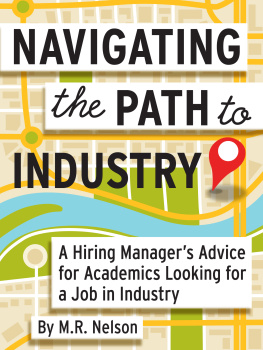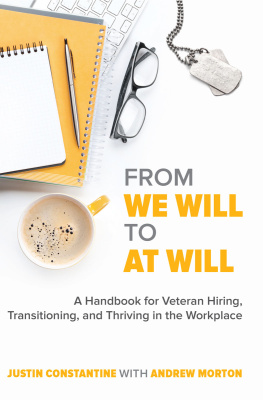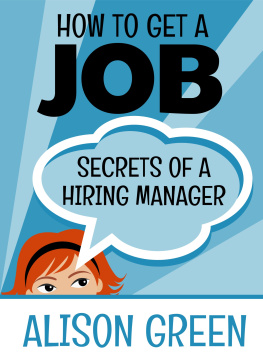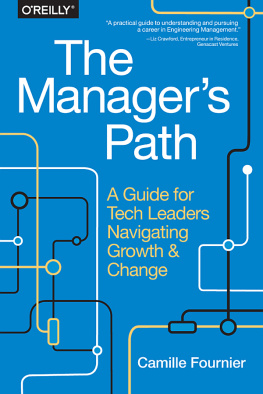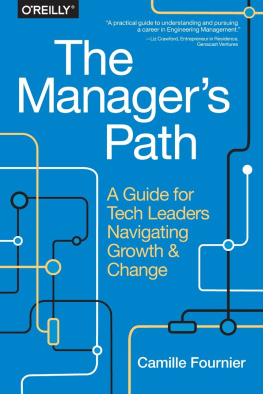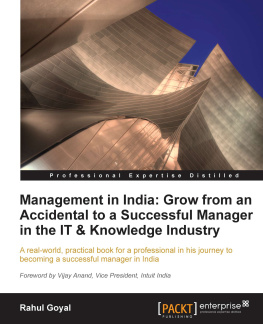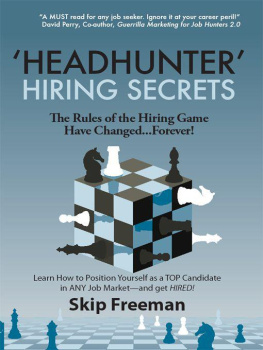Navigating the Path to Industry:
A Hiring Managers Advice for Academics Looking for a Job in Industry
M.R. Nelson

If youre reading this book, you are probably at least contemplating looking for a job outside academia. If you are like most people in academia, you are not sure how to conduct such a search. That is not your fault. Academia, at all levels, does not talk much about how to leave it.
Thats where this book comes in. It is a collection of job searching advice distilled from more than ten years as a hiring manager, my own multiple job searches, and the advice Ive been given over the years from friends, colleagues, and professional outplacement services.
My background is in the biomedical sciences and information technology. I have spent my career in the United States, primarily in the biotechnology and pharmaceutical industries. My advice is skewed towards my background, but it is tempered by information from friends in other fields and what I learned in general outplacement courses I have taken over the years. In general, the earlier portion of my advice is likely to be relevant to most industries, while the specific advice about resumes, cover letters and interviewing should be confirmed with someone in the industry that you are targeting. Dont worry, in the first part of this book, Ill talk about how to meet someone who can provide that confirmation.
In short, think of this book as providing a framework for your job search. It cannot guarantee you a job unfortunately, nothing can do that. It also cannot provide a specific roadmap for your job search. You will need to fill in the details for yourself, based on your own particular skills and goals. It will, however, help you get started and give you a general idea of the steps you need to take and some common pitfalls to avoid.
The very first pitfall to avoid is waiting until you need a job to start the process of looking for one. A great deal of the work that goes into finding a job can be done well before you need one, and in fact, much of it is best done before you are ready to move on from your current situation. You can and should start some of the tasks described in this book even before you know what, exactly, you want to do next. This is because the most successful approach to finding a job is via an actual connection with a hiring manager. Building a network that will lead to that connection and developing the skills with which to follow up on that connection both take time. Do not despair if you are in the midst of an active job search and have not done the preparatory work I recommend in the first part of this book. You can jumpstart this work by focusing more time and effort on it now. However, if you are a year or more from the end of your academic position and think you have plenty of time before you need to worry about these things, I urge you to reconsider. Your eventual job search will be much easier if you start building a foundation for it now.
This book is divided into four parts. The first covers the preparatory work that you should do before you start to apply for jobs. Part two discusses the mechanics of applying for jobs. Part three offers some final thoughts on the job search process, and part four provides notes and links to additional resources.
Part I: Prepare Yourself to Apply for Jobs

You may think that the most important thing to do in a non-academic job search is to find job postings and reply to them. This is not true. Your search is likely to be successful in less time if you do some preparatory work before you start. This section describes that work.
1. Lay the foundation
Set up your software and systems
The first thing to do is to make sure you have a neutral email address. It should not be tied to your university, because the hardest work in a job search is making new contacts, and you want those contacts to persist after you get your first job. If you are searching for a job in the United States, it should have a US domain name (e.g., .com and not .co.uk). Even if you have permanent residency, a non-US domain name may make potential employers and other contacts think you will require sponsorship. If you do need sponsorship, it is better to postpone that discussion until the other person has met you and formed some idea of how valuable your skills would be to his or her company.
The email address you use for your job search should be completely professional. Avoid using jokes or informal nicknames in the address. In general, it is best to try to get some version of your full name or first initial and last name. You do not need to move all of your correspondence to this email address; you can just forward the address to your main one, and log into your account only when you have emails to send.
The next thing to do is to decide what software youll use to produce your key documents, such as your resumes and cover letters. If you are aiming at a field that requires giving a seminar or other presentation as part of the interview, you also need to consider how you will create your presentation materials (i.e., your slides). You should always send your resume to people as a PDF file, so that the formatting will be preserved and you can be certain they will be able to open it with software they already have. It does not matter what software you use to produce your resume, as long as that software is capable of doing basic formatting and can export the document as a PDF file. If you need to create presentation slides and are going to use anything other than the presentation software standard in your field (in most cases, Microsoft PowerPoint), then be sure that you can export to a PDF file and that you are comfortable running your presentation from a PDF file. In many cases, you can bring your own laptop and run your presentation from it, but sometimes you will be required to use the companys computer.
Next, you need to decide how you want to organize your job search information. You will make many new contacts, so decide upfront where you will store information about them. You certainly need to store contact information and a job title for each person you talk to about your career. You may also want to store a few notes about them so that you do not need to ask the same questions again when you reconnect with them in the future.
As you will see later, you will also generate a lot of resumes and cover letters one for each job for which you apply. You absolutely must keep these organized, because accidentally sending the wrong cover letter to a company will almost certainly end your chances for that job. I personally have a set of folders on my computer for my cover letters and resumes, with one folder for each job for which I apply. I also have a notebook in which I keep a list of people I need to contact and other specific tasks for my job search. I use LinkedIn to maintain my list of contacts. I will discuss LinkedIn in more detail later in this book.
Prepare yourself mentally
The final piece of preparation is to make sure you are approaching the search with a strong and resilient mindset. This is the easiest preparation step to skip, but in many ways the most important to complete. Searching for a job is difficult even in the best of economic times, and these are not the best of economic times. There is no set script I can give you to prepare your mindset, but the following points might be helpful.
First, remember that you are only trying to find your first job. Your first job is not your forever job. It does not have to be the perfect manifestation of all your hopes and dreams. It just has to be interesting and rewarding enough for you to feel confident youll stay at least a couple of years, and it should provide you with skills and experiences upon which you can continue to build. As unfair as it seems from your current position in academia, industry experience really does matter. Even if it doesnt matter from an able to perform the job functions point of view, it almost certainly matters from a someone will decide to hire you point of view. You will find it easier to get future jobs once you have industry experience, just because you have that experience. You will also have a wider network and a broader view of the various types of jobs available. So dont get hung up looking for the perfect job now. Look for a good job.
Next page
